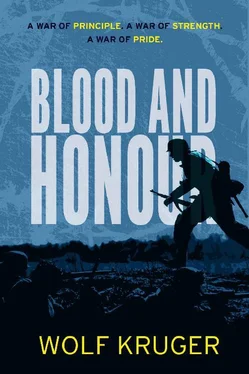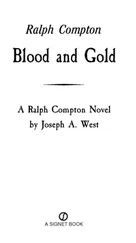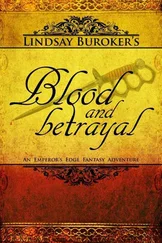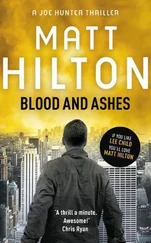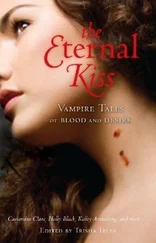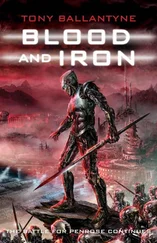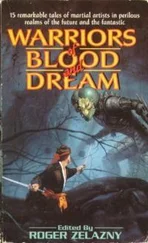“Prisoners, sir,” he announced.
Ritter smiled. “Very good, sergeant,” he purred, considering the group of bewildered poles.
“We found a stock of weapons in a house on the edge of the village, sir.”
One of the two women in the group stepped forward and, in surprisingly good German, said, “We knew nothing of the weapons.”
Ritter’s grin dropped away as if it had never existed. “Silence,” he shouted, drawing his Luger. Herzog threw a worried glance at Foss, who gently shook his head.
“Are there any more weapons in the village?” asked the captain.
The woman shook her head resignedly. “I don’t know, we didn’t even know about these…”
The sentence trailed off as Ritter lashed out and struck her across the cheek with the pistol butt; the skin split open exposing a network of blood-vessels and muscle. The woman fell. A tall man, whom Herzog took to be her husband, suddenly lunged towards Ritter but, before he could grab the captain, he had received a sharp blow across the head from Althus. He fell at her side.
The woman gazed up at the captain and saw that he was holstering his pistol again; there was an enigmatic glint in his eye. She braced herself, but instead Ritter turned to Herzog and said, “We will find nothing of value from her or the others. Shoot them.”
The corporal swallowed hard, suddenly aware of the silence which had descended as both civilian and soldier alike turned their eyes towards the centre of the square.
“Shoot them,” repeated Ritter, calmly.
Herzog took a step back and glanced at the four men flanking the captives; they had formed a line, their sub-machine-guns pointing downwards.
“Give the order,” demanded Ritter and things began to take on a horrible familiarity. Time seemed to have stood still; Herzog felt as if he were back in St Sarall again. He drew his P-38 and pushed past Foss, his eyes glazed like a drunkard. The four men glanced at him and cocked their weapons. The loud metallic clicks echoed across the square.
“Give the order,” repeated the captain.
Herzog felt a bead of sweat pop onto his forehead; his hand tightened around the butt of the P-38.
Herzog shook his head very slowly. Althus stepped forward but Foss grabbed his arm.
“Tell them to fire,” ordered Ritter.
Herzog was transported back in time; in his mind, images of praying women danced madly. He gritted his teeth until they ached.
“Tell them to fire, I won’t tell you again, Herzog,” Ritter sneered and chuckled throatily. “You might even get another Iron Cross.”
Even if Ritter had been able to see what was happening, it is doubtful if he would have been able to prevent it.
In one practised movement, Herzog swung the P-38 up and, from point-blank range, fired. The bullet caught Ritter just below the left eye, exploding from the back of his head and tearing a hole the size of a tennis ball. He pitched backwards, a greyish slop of brain falling to the cobbles beneath his body. Thick blood bubbled through his hair like water through reeds. Herzog fired again, the impact of the bullet twisting the body round, causing the lifeless arms to twitch as if they had still been animated. It was scarcely necessary to fire the third bullet. Or the fourth.
Herzog stood staring at the corpse for long seconds, then he wheeled and walked away. Foss saw Althus’s hand drop to his holster but he reacted quickly. Herzog spun round when he heard the chatter of machine-gun fire and saw Althus lying alongside the captain, drilled through with a dozen bullet-holes, the pistol still gripped hard in his fist.
Smoke rose from the barrel of Foss’s MP 40, curling up like the smile on his lips. Herzog raised a hand.
The Poles stood rooted to the spot, as did the four guards.
The same shell-blast killed all of them.
“Russians,” shouted Herzog, “take cover.” He threw himself down as another shell exploded, bringing a house down as if it had been made of cards. Machine-guns chattered and rifles cracked, all joined with the rapid succession of shell-bursts. An artificial sun of exploding metal and gunpowder rose swiftly over the town then vanished, to be replaced immediately by another.
“The churchyard,” shouted Foss, “move.”
Without a second invitation, the men scurried across the square and took cover behind the low stone wall. Vogel set up the MG 42 on top of a tomb and checked that the belt was feeding correctly, then he squinted down the sight. Herzog pulled a number of stick grenades from his belt and lashed them together. There were probably tanks on the way.
His assumption was correct. Followed by the swarms of brown-clad infantry, a T-34 appeared round a corner, its machine-guns spitting tracer at the Germans. Whatever resistance the Russians had met from the troops positioned further out must have been slight, for they charged on, screaming oaths and hurling grenades towards the church, standing defiantly before automatic weapons brought them down in heaps. But those behind used the mounds of corpses as cover and, soon, the two sides were sniping at each other across ground covered in blood and strewn thickly with shattered hunks of humanity. Driest hurled a stick grenade and saw it explode, watching as living and dead alike were catapulted into the air by the blast.
Zorn covered his head as an explosion tore up the ground two yards from him; broken chunks of gravestone flew into the air, raining down again like concrete confetti.
“Mortars,” he announced, authoritatively, sitting down to reload his MP 40.
“You’re a useful bloke to have around,” said Schiller, sardonically, shooting down a Russian officer who was crawling towards the wall. “Not everyone can tell you what they’re being shot at with.”
“Not everyone wants to know,” muttered Driest.
Behind the cover of the T-34, three Russians were dragging a Maxim into position behind the ruins of a wall and, in minutes, it was thundering out a reply to the staccato rattle of Vogel’s MG 42. Ganz suddenly got to his feet and scuttled towards the door of the church.
“Where the hell are you going?” shouted Foss, trying to make himself heard above the roar of explosions and chatter of automatic weapons.
“Bell tower,” said Ganz, happily and disappeared into the church.
Foss shrugged and emptied another magazine towards the Russians. Spent cartridge-cases covered the grass of the churchyard like golden confetti, sweating men reloaded their weapons, ignoring the blisters on their hands where the machine-guns had become red-hot. Kahn replaced his Mauser pistol in his belt and snatched up a discarded rifle. He knew that, once a Mauser became overheated, rounds were likely to go off in the chamber, a sight which he had witnessed more than once.
“Here they come,” yelled Herzog, peering over the wall.
A wave of brown seemed to rise from the very earth itself and charge towards the Germans. This time machine-gun fire did not halt them, the blood-crazed Russians hurdled the low stone wall like so many steeple-chasers and threw themselves on the Germans. Although vastly outnumbered, the men in grey had a quality which the Russians did not possess.
Desperation.
Screams of agony began to drown out the noise of weapons as men shot, strangled, stabbed and killed each other any way they would. Pieces of broken gravestone were used to crush skulls to pulp, the loud cracking of bone being clearly audible. Kahn drew his sword and disembowelled a Russian corporal, stepping over the body to slash open the chest of the man following.
Synovski pulled a wooden cross from the earth and drove its sharpened point into a tall private. The man shrieked and fell back, trying to wrench the stake from his stomach. He lay writhing like a snake until a mortar-blast from his own side blew his head off. The Pole drew his Radom pistol and shot down two more of the brown men.
Читать дальше
